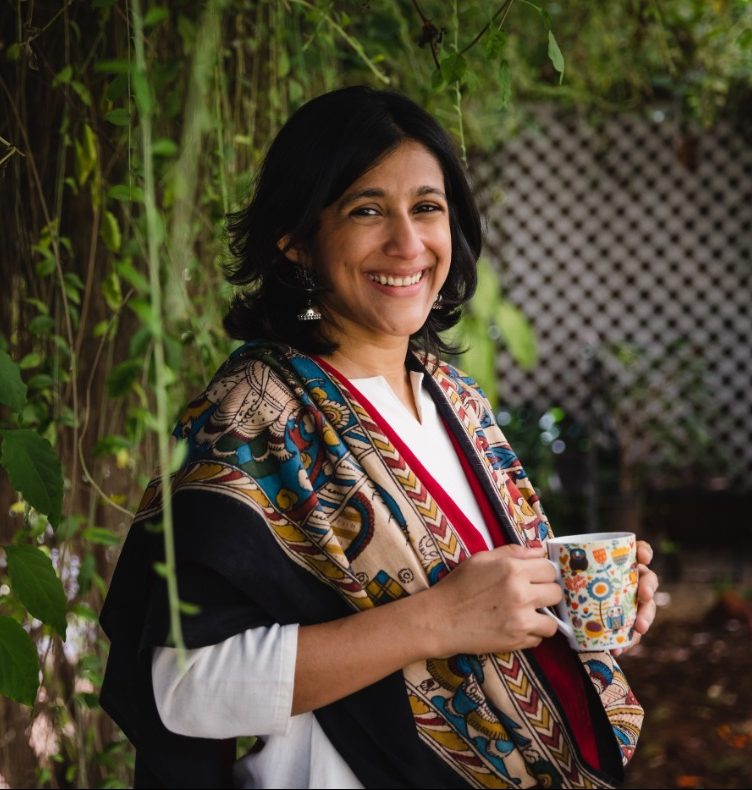| The British Version Ring-a-ring o’roses,A pocketful of posies,A-tishoo! A-tishoo!We all fall down. | The Indian version Ringa Ringa roses,pocketful of posies,husha busha !We all fall down |
This popular childrens rhyme dates back to the Black death or bubonic plague of the 1300s. It was popularised during London’s great plague of 1665. Usually, children hold hands and sing the song in a circle and when the last line is sung, they imitate the gesture of falling down. The symbolism of the song while macabre–“we all fall down” indicates collective death–it was used to make meaning of tragedy through the medium of rhyme and play. The present pandemic has become so much about big people and our big problems in this big bad world that we might have neglected little people and their narratives altogether. They too, afterall, live in the same big world as us.
Much like Antoine de saint-exupéry in his book “The little prince” writes a dedication :
“To Leon worth
I ask the forbearance of the children who may
read this book for dedicating it to a grown-up…
I will dedicate the book to the little boy
from whom this grown-up grew.
All grown-ups were children once –
although a few of them remember it.
And so I correct my dedication :
To Leon Worth when he was a little boy”
I, likewise, dedicate this article to the child in all of us.
The longest I ever (against my will) stayed at home was in the summer of 1989. I had just contracted a particularly bad case of the chicken-pox. My little sibling and parents left me with my grandmother. I could not understand why I was not allowed to leave home or meet with other children. My absolutely devoted grandmother whose heart was full of abundance dropped everything that was a priority to her, and gave me preference before all else. She had no house-help. The “big-me” would call that “brave” and unnecessary. The little me however, was thrilled to be told this story – “Rinku (as she lovingly called me), the chickenpox magically affected only you, because you are special, and I always wanted to have you all to myself, so that we could do things together without any rules. Just you and me. NO RULES. You will remember this time you have spent with Ati (my grandmother) and Ravi mama (my uncle) for the rest of your life.” Here I am, at 40, narrating the story of the “best” worst Summer vacation I ever had, to you. A vacation without rules.
Storytelling.
Human existence revolves around storytelling and play. Camp elders in some indigenous tribes who are skilled storytellers can recount tales that engage and when needed uplift the human spirit. While stories are a powerful pedagogic tool, they are also a beautiful therapeutic tool. They give vent to childrens curiosity and playfulness while building hope and resilience, but most importantly can heal trauma. For hundreds of years stories, narratives and poems have helped heal the memories of previous massacres, genocide, dislocation and displacement. One such example is the book “Hiroshima No Pika” written in 1980 by Toshi Maruki. In it, he calls the Atomic Bomb “the flash of Hiroshima” and goes on to narrate the happenings of 6th August when a little girl and her parents are eating breakfast and “it” happens – the flash. The author tells of a great tragedy, beautifully, in the hope that it will never happen again, anywhere. Then again, there was the1997 Oscar winning Italian movie La vita è bella with Roberto Benigni where he plays a Jewish waiter named Guido who uses magical storytelling as a way to soften the blow of the Holocaust for his young son. The narrative dares to laugh in the face of the unthinkable. It both hurts and heals at the same time, and at this time in history, when a big thing has happened and now everything is different, it inspires.
What stories will you tell your children about COVID?
Will they be racist? Will they be political? Will they talk about freedoms being taken away? Will they ask for them to fear the unknown? Will they complain about how birthdays and travel were missed?
Or, will they be about how the whole Big world – big and little people – have come together to solve a problem. How science is helping protect us. How medical workers are being hero’s. How little people are being brave and how the children of the world are ultimately triumphing over this not quite red, neither yellow, nor green but entirely colourless thing. And how, together, in the end as always —
We shall overcome.


